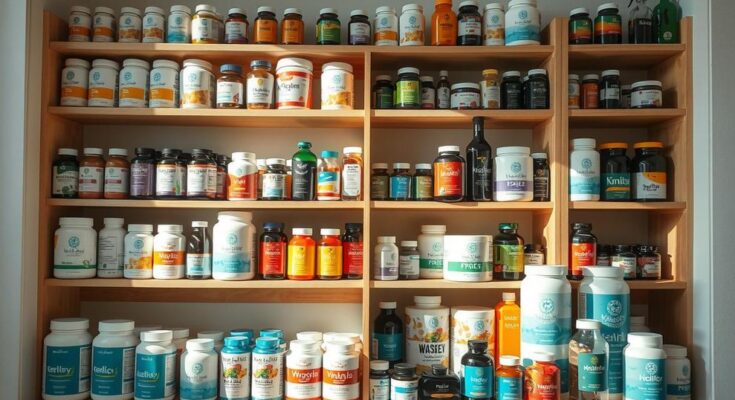The wellness world is overflowing with colourful supplements, from magnesium to collagen, drawing people into the allure of health investment. While many end up collecting dust in cupboards, we often feel pressured to spend money on these promises. In this age of social media, particularly on platforms like TikTok, the temptations to purchase miracle powders are stronger than ever, despite their questionable legitimacy.
The supplement industry thrives on vulnerability and fear of illness, leading to soaring sales, particularly after the pandemic renewed interest in health and wellness. It’s estimated that the UK supplement market reached over £650 million in sales, while projections for the US market hit a staggering $70 billion by 2030. This trend urges consumers to seek quick-fix solutions through supplements rather than addressing their diets.
However, the reality is that supplements aren’t a universal solution. As registered nutritional therapist GQ Jordan advises, we should approach supplements like prescriptions tailored to our unique health needs. Factors such as genetics, fitness, and existing health issues make each person’s requirements different, highlighting the necessity of personalised health consultations.
Not all supplements are created equal; nutritional expert Lynsey Vaughan emphasises the importance of quality ingredients over fillers and synthetic additives. Many supplements contain unnecessary excipients that disrupt nutrient absorption, potentially harming gut health instead of helping. Over-reliance on such products can irritate the sensitive gut lining, leading to adverse effects.
Moreover, no supplement can compensate for a poor diet. The wellness industry’s marketing can lead consumers to neglect their nutritional intake, resulting in distorted health priorities. It’s pivotal to focus on a wholesome and balanced diet rich in nutrients rather than depending solely on supplements for health benefits.
If only one supplement is to be taken, vitamin D is a prime choice, especially in the UK’s darker months. Both experts acknowledge the importance of omega-3 fatty acids and magnesium too, as these nutrients support various bodily functions, from mood enhancement to improved gut health.
In conclusion, while the charm of supplements is ever-present, understanding their role, listening to your body’s needs, and prioritising nutrient-rich foods should take precedence. Embracing a healthy lifestyle rooted in good diet can significantly reduce the need for excessive supplementation, ultimately enhancing both physical and gut health.
This article examines the growing concern surrounding wellness supplements and their potential negative effects on gut health. Despite the surge in popularity, many supplements are unnecessary and can disrupt bodily functions. A focus on personalised nutrition and a balanced diet is crucial for optimal health, with vitamin D and omega-3s highlighted as the most beneficial supplements if needed.
In summary, the supplement landscape is both enticing and intricate. It’s essential to approach supplementation with caution, considering individual health needs and the quality of the products chosen. Prioritising a balanced diet rich in nutrients proves to be a more beneficial strategy than relying on supplements alone. By focusing on nourishing the body through food, we can cultivate a healthier gut and overall well-being.
Original Source: www.independent.co.uk



